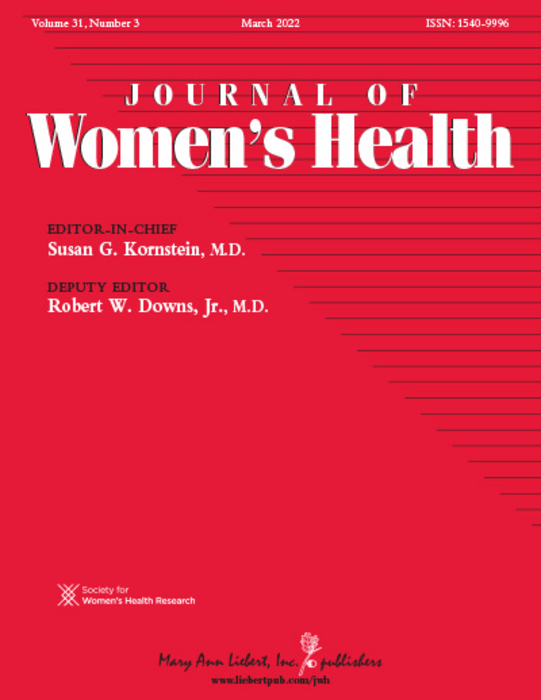A new study found that females with Long COVID-19 syndrome were more symptomatic than males. Females were statistically significantly more likely to experience difficulty swallowing, fatigue, chest pain, and palpitations at long-term follow-up, according to a study published in the peer-reviewed Journal of Women’s Health. Click here to read the article now.

Credit: Mary Ann Liebert, Inc., publishers
A new study found that females with Long COVID-19 syndrome were more symptomatic than males. Females were statistically significantly more likely to experience difficulty swallowing, fatigue, chest pain, and palpitations at long-term follow-up, according to a study published in the peer-reviewed Journal of Women’s Health. Click here to read the article now.
Long-COVID-syndrome is defined as persistent symptoms extending beyond 12 weeks after the initial symptoms of acute infection. In this study by Giovanna Pelà, MD, PhD, University of Parma, and University-Hospital of Parma, and coauthors, 91% of patients evaluated at follow-up (mean, 5 months) continued to experience COVID-19 symptoms. Breathlessness was the most common symptoms of long COVID-19, followed by fatigue. Females were more symptomatic than males (97% vs. 84%).
“Long-term longitudinal studies are needed to fully understand the sex-related pathophysiology of the symptoms and the effects of pharmacological treatment related to Long COVID-19; these studies will be crucial to understanding the natural trajectory of Long COVID-19 in order to implement targeted treatment strategies and to prevent bias in treating males and females,” concluded the investigators.
“While women have a lower mortality rate than men during the acute phase of COVID, this study indicates that women have a greater likelihood of experiencing Long Covid syndrome,” says Journal of Women’s Health Editor-in-Chief Susan G. Kornstein, MD, Executive Director of the Virginia Commonwealth University Institute for Women’s Health, Richmond, VA.
About the Journal
Journal of Women’s Health, published monthly, is a core multidisciplinary journal dedicated to the diseases and conditions that hold greater risk for or are more prevalent among women, as well as diseases that present differently in women. Led by Editor-in-Chief Susan G. Kornstein, MD, Executive Director of the Virginia Commonwealth University Institute for Women’s Health, Richmond, VA, the Journal covers the latest advances and clinical applications of new diagnostic procedures and therapeutic protocols for the prevention and management of women’s healthcare issues. Complete tables of content and a sample issue may be viewed on the Journal of Women’s Health website. Journal of Women’s Health is the official journal of the Society for Women’s Health Research.
About the Publisher
Mary Ann Liebert, Inc., publishers is known for establishing authoritative peer-reviewed journals in many promising areas of science and biomedical research. A complete list of the firm’s more than 100 journals, books, and newsmagazines is available on the Mary Ann Liebert, Inc., publishers website.
Journal
Journal of Women s Health
DOI
10.1089/jwh.2021.0411
Method of Research
Case study
Subject of Research
People
Article Title
Sex-related differences in long-COVID-19 syndrome




